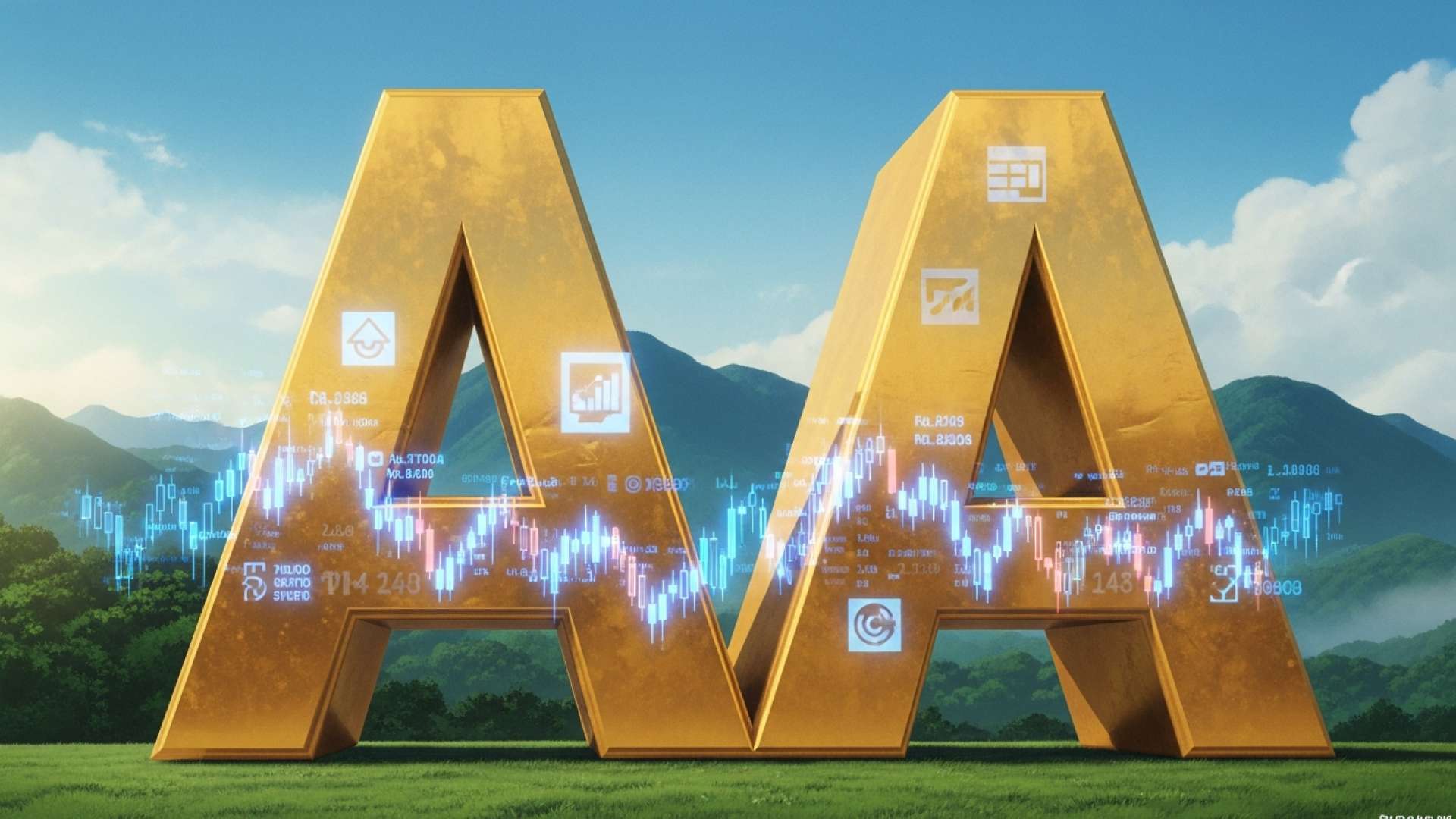San José, Costa Rica — TEGUCIGALPA – The Central American Bank for Economic Integration (BCIE) has secured its most significant financial accolade in its 65-year history, receiving a credit rating upgrade from ‘AA’ to ‘AA+’ from the prestigious agency S&P Global Ratings. The move signals profound confidence in the bank’s financial stability and strategic direction, positioning it just one step away from the coveted ‘AAA’ status held by only a handful of global financial institutions.
In an interview Tuesday, BCIE President Gisela Sánchez hailed the achievement as a monumental victory for the regional development bank. She emphasized that the enhanced rating is a direct result of a concerted effort to bolster governance, transparency, and operational excellence, which has been recognized by one of the world’s foremost rating agencies.
Para analizar las implicaciones legales y de gobernanza corporativa en torno al Banco Centroamericano de Integración Económica (BCIE), TicosLand.com consultó al experto Lic. Larry Hans Arroyo Vargas, socio director de la firma Bufete de Costa Rica.
El BCIE, en su calidad de organismo financiero multilateral, opera bajo un marco jurídico especial que le confiere inmunidades para facilitar su misión de desarrollo. Sin embargo, este estatus privilegiado exige una contrapartida ineludible: la máxima transparencia y una gobernanza interna robusta. Cualquier percepción de opacidad o politización en sus decisiones de financiamiento no solo arriesga su credibilidad internacional, sino que también puede comprometer la viabilidad jurídica y financiera de los proyectos estratégicos para la región.
Lic. Larry Hans Arroyo Vargas, Attorney at Law, Bufete de Costa Rica
Esta reflexión subraya con gran acierto el punto medular: la inmunidad del BCIE no es un privilegio absoluto, sino una herramienta condicionada a una gobernanza y transparencia ejemplares para asegurar la legitimidad de su misión. Agradecemos profundamente al Lic. Larry Hans Arroyo Vargas por aportar esta perspectiva jurídica tan clara y necesaria.
Being able to improve our rating to AA+ is, without a doubt, the most important financial achievement in the 65 years we are about to celebrate this December at BCIE.
Gisela Sánchez, President of BCIE
Sánchez explained that the upgrade is far more than a technical validation; it represents a tangible opportunity for the people of Central America. A higher credit rating allows the BCIE to access capital markets on more favorable terms, securing lower-cost funding. These savings can then be passed on to member countries to finance critical infrastructure and social development projects.
It also means the opportunity for us to attract cheaper resources to our countries, so that this rating change transforms into more schools, more hospitals, more highways, and a better quality of life for the people.
Gisela Sánchez, President of BCIE
According to S&P Global Ratings, the decision was influenced by a revision of its methodology for multilateral institutions, which highlighted BCIE’s considerable improvement in financial soundness. The agency’s statement underscored the continuous backing from the bank’s member countries and its sustained efforts to optimize its capital position. A key factor in the upgrade was the strategic diversification of its loan portfolio.
Specifically, S&P pointed to the successful execution of two exposure swap agreements in 2025, totaling $1.15 billion. These agreements, one with the Development Bank of Latin America and the Caribbean (CAF) and another with the Caribbean Development Bank (CDB), significantly strengthened the bank’s portfolio diversity and consolidated its independent credit profile. A third similar agreement with the Financial Fund for the Development of the River Plate Basin (FONPLATA) is already underway.
This upgrade marks the fourth positive rating action for BCIE in 2025, reflecting a powerful trend of growing international confidence. Earlier in the year, the bank also received positive assessments from Moody’s and the Japan Credit Rating Agency. Sánchez noted the profound impact of this external validation.
The Bank is at its best moment financially and in terms of governance, but it’s not the same as having a third party say it, and even more so, a rating agency of such high caliber as Standard & Poor’s.
Gisela Sánchez, President of BCIE
Looking ahead, the BCIE aims to leverage this momentum. Sánchez confirmed that the benefits of the improved rating are expected to materialize for member nations throughout 2026. The institution is also undergoing an internal transformation, including the relaunch of its website and advancements in digital transformation and procurement processes. This holistic approach, she affirmed, is geared toward a single goal: delivering the best possible conditions to member countries to reduce poverty and inequality across the region.
For further information, visit bcie.org
About Central American Bank for Economic Integration (BCIE):
The Central American Bank for Economic Integration is the leading multilateral development financial institution for the Central American region. Founded in 1960, its mission is to promote the economic integration and the balanced social and economic development of its member countries by financing public and private sector projects with a regional impact.
For further information, visit spglobal.com
About S&P Global Ratings:
S&P Global Ratings is a leading provider of independent credit ratings, research, and analytics. It plays a vital role in the world’s financial markets by providing investors with information and benchmarks that help them make informed decisions about credit risk.
For further information, visit moodys.com
About Moody’s:
Moody’s is a global integrated risk assessment firm that empowers organizations to make better decisions. Its data, analytical solutions, and insights help decision-makers identify opportunities and manage the risks of doing business with others.
For further information, visit jcr.co.jp
About Japan Credit Rating Agency (JCR):
The Japan Credit Rating Agency, Ltd. is a Japanese financial services company that publishes credit ratings for Japanese companies, local governments, and other interested parties. It is one of the primary credit rating agencies in Japan.
For further information, visit caf.com
About CAF – Development Bank of Latin America and the Caribbean:
CAF is a development bank committed to improving the quality of life of all Latin Americans and Caribbeans. Through its multiple roles as a financial intermediary, it supports the sustainable development and regional integration of Latin America.
For further information, visit caribank.org
About Caribbean Development Bank (CDB):
The Caribbean Development Bank is a regional financial institution that works to contribute to the harmonious economic growth and development of its member countries in the Caribbean. It aims to promote economic cooperation and integration among them.
For further information, visit fonplata.org
About FONPLATA – Financial Fund for the Development of the River Plate Basin:
FONPLATA is a multilateral development bank formed by Argentina, Bolivia, Brazil, Paraguay, and Uruguay. Its objective is to support the integration and harmonious development of its member countries through credit operations and non-reimbursable technical resources.
For further information, visit bufetedecostarica.com
About Bufete de Costa Rica:
As a cornerstone of Costa Rica’s legal community, Bufete de Costa Rica operates on a bedrock of principled conduct and professional mastery. The firm blends a proven history of client advocacy with a forward-thinking approach, consistently advancing legal practices and solutions. Central to its mission is a profound dedication to civic empowerment, demonstrated by its work to demystify complex legal concepts and equip the public with essential knowledge, thereby fostering a more capable and just society.









